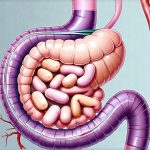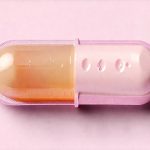Bloating is a surprisingly common experience, affecting people across all ages and demographics. It’s often dismissed as simply “feeling full” but can range from mildly uncomfortable to debilitatingly painful, significantly impacting daily life. Understanding the causes of bloating is complex – it’s rarely just one thing – and can involve dietary factors, digestive issues, hormonal fluctuations, or even stress. Many people instinctively reach for diuretics or attempt restrictive diets when feeling bloated, hoping to ‘flush’ things out, but often a far simpler solution exists: adequate hydration. This article will delve into the relationship between hydration and bloating, exploring how proper water intake can not only alleviate symptoms but also address some underlying causes of this frustrating condition.
The misconception that bloating is solely about excess water retention contributes to many ineffective solutions. While it is true that fluid imbalances can play a role, dehydration frequently exacerbates bloating rather than relieving it. When the body is dehydrated, it tends to hold onto available fluids, including in the digestive system, leading to swelling and discomfort. Further complicating matters, inadequate hydration impacts gut motility – the movement of food through the digestive tract – slowing things down and allowing gas to build up. This creates a vicious cycle: feeling bloated leads to reducing fluid intake (thinking it will help), which actually worsens the bloating. If you find yourself struggling with this, consider how lifestyle changes might help.
The Science Behind Hydration & Digestion
Hydration isn’t simply about drinking enough water; it’s about maintaining electrolyte balance as well. Electrolytes – sodium, potassium, magnesium, and chloride – are crucial for proper cellular function, including muscle contractions in the digestive system. Dehydration disrupts this balance, leading to sluggish digestion and increased gas production. Think of your digestive system like a well-oiled machine: it needs the right fluids and components to run smoothly. Without sufficient water and electrolytes, the gears start grinding, causing discomfort and bloating.
Furthermore, adequate hydration supports the healthy functioning of the kidneys. The kidneys play a vital role in regulating fluid balance within the body, eliminating excess sodium (which can contribute to water retention) and waste products that might otherwise exacerbate digestive issues. A dehydrated kidney is less efficient at performing these functions, leading to increased bloating. It’s important to note that chronic dehydration doesn’t just cause immediate bloating; it can also negatively impact long-term gut health, making individuals more susceptible to digestive discomfort over time. You may find yourself asking can fasting help reset things?
Water also plays a direct role in breaking down food during digestion. Saliva, primarily composed of water, initiates the digestive process. As food moves through the intestines, water is essential for dissolving nutrients and facilitating their absorption. Insufficient hydration hinders this process, potentially leading to undigested food fermenting in the gut – a major contributor to bloating and gas.
How Dehydration Worsens Bloating Specifically
Dehydration isn’t just a general discomfort; it directly impacts several factors that contribute to bloating. One key aspect is its effect on constipation. When dehydrated, the colon pulls more water from stool to compensate, making it harder and more difficult to pass. This leads to constipation, which in turn allows gas and waste products to accumulate in the digestive tract, resulting in significant bloating. The longer waste remains in the system, the more uncomfortable things become. Staying hydrated can really impact hydration’s role in preventing this.
Another way dehydration exacerbates bloating is by increasing cortisol levels. Cortisol, often called the “stress hormone,” rises when the body is under stress – including the stress of dehydration. Elevated cortisol can disrupt gut motility and increase intestinal permeability (often referred to as “leaky gut”), allowing undigested food particles and toxins to enter the bloodstream, triggering inflammation and bloating. It’s a cascade effect: dehydration leads to increased cortisol, which then leads to further digestive issues.
Finally, dehydration affects the microbiome – the community of bacteria living in our gut. A healthy microbiome is crucial for digestion and overall health. Dehydration can negatively impact the composition and function of this microbiome, reducing beneficial bacteria and increasing harmful ones. This imbalance contributes to gas production, inflammation, and ultimately, bloating. Maintaining a well-hydrated state supports a thriving and balanced gut microbiome. Sometimes you have to say no to plans in order to support your health.
Determining Your Optimal Hydration Level
There’s no one-size-fits-all answer to how much water you should drink daily. It depends on various factors including activity level, climate, diet, and overall health. The commonly cited “eight glasses a day” is a good starting point but shouldn’t be taken as gospel. Here are some ways to assess your hydration needs:
- Monitor Your Urine Color: Pale yellow urine indicates good hydration, while dark yellow or amber suggests dehydration.
- Pay Attention to Thirst: While not always reliable (as you can become dehydrated before feeling thirsty), thirst is a signal that your body needs fluids. Don’t ignore it!
- Consider Your Lifestyle: Athletes, people living in hot climates, and those with physically demanding jobs need more water than sedentary individuals.
- Evaluate Dietary Intake: Fruits and vegetables contain significant amounts of water. Adjust your fluid intake accordingly based on your diet.
Beyond plain water, consider incorporating hydrating foods into your diet (cucumber, watermelon, spinach) and electrolyte-rich beverages (coconut water, herbal teas). Be mindful of sugary drinks and excessive caffeine, which can actually contribute to dehydration. It’s also important to sip water throughout the day rather than chugging large amounts at once; this allows for better absorption and utilization. Hydration and its role is key here.
Beyond Water: Electrolytes & Supporting Digestion
While water is fundamental, electrolytes are essential partners in maintaining proper hydration and digestive function. Sodium, potassium, magnesium, and chloride all play vital roles. A deficiency in any of these can disrupt fluid balance and exacerbate bloating. Incorporating electrolyte-rich foods into your diet – bananas (potassium), leafy greens (magnesium), pickles/olives (sodium) – is a good starting point.
Furthermore, supporting overall digestive health alongside hydration can significantly reduce bloating. This includes:
– Eating fiber-rich foods to promote regularity.
– Identifying and avoiding trigger foods that cause gas or discomfort.
– Managing stress levels through relaxation techniques like yoga or meditation. Yoga poses can be a great help here.
– Considering probiotics to support a healthy gut microbiome (consult with a healthcare professional first).
Bloating is often multi-faceted, but by prioritizing adequate hydration and addressing underlying digestive factors, you can significantly reduce its occurrence and improve your overall well-being. It’s not just about the water itself; it’s about creating a holistic approach to gut health that supports optimal digestion and fluid balance. If you suspect food intolerances are playing a part, explore those as well.


















